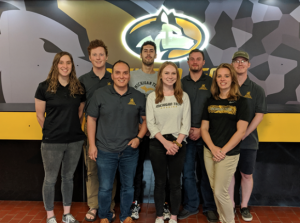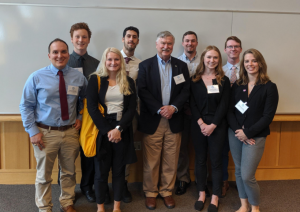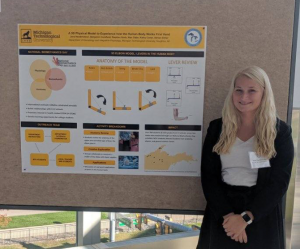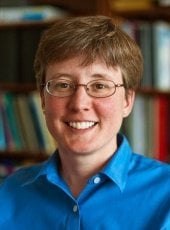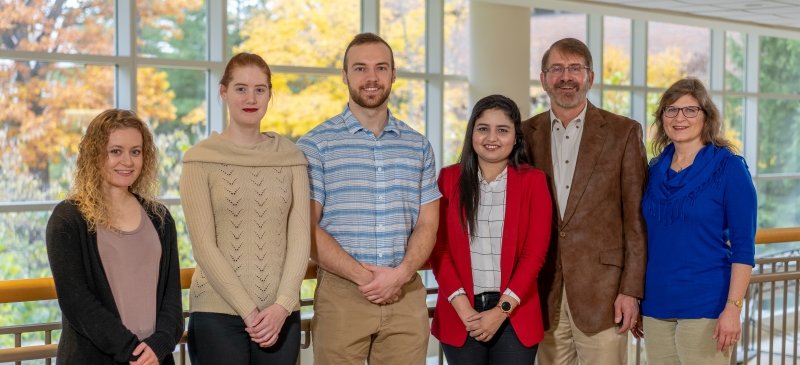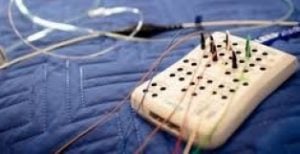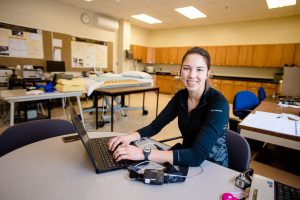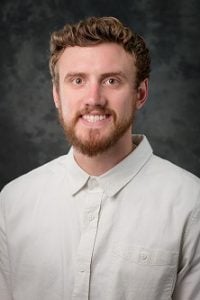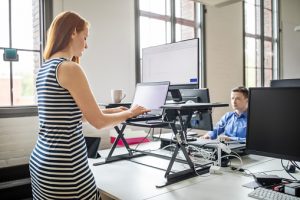 John Durocher (BioSci), Steve Elmer (KIP) PhD student Ian Greenlund, recent graduate Piersan Suriano and Jason Carter published The paper titled “Chronic Standing Desk Use and Arterial Stiffness” in this month’s issue of the Journal of Physical Activity and Health.
John Durocher (BioSci), Steve Elmer (KIP) PhD student Ian Greenlund, recent graduate Piersan Suriano and Jason Carter published The paper titled “Chronic Standing Desk Use and Arterial Stiffness” in this month’s issue of the Journal of Physical Activity and Health.
The results of the study indicate that using a standing desk for more than 50% of the workday did not effectively reduce arterial stiffness. The study confirms that aerobic fitness reduces arterial stiffness, and that aging increases arterial stiffness. The authors wish to thank faculty and staff members from around campus who participated in this study.
The article can be viewed free.
